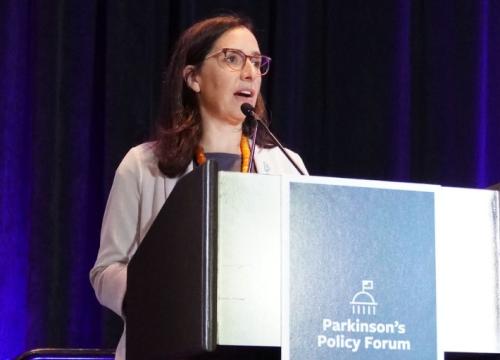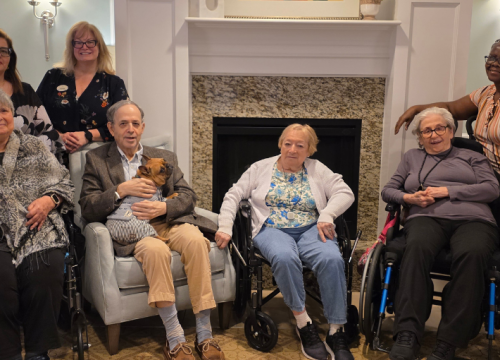How To Stay Safe During a Hospitalization with Parkinson’s

Whether planned or an emergency, hospitalization may be necessary during the COVID-19 pandemic. If you or your loved one is living with Parkinson’s disease (PD), the below tips can help you have a safe hospital experience.
1. Be prepared.
Pick a hospital ahead of time so you do not scramble to find one during a medical emergency. A safe hospital is one that will make sure you get your PD medications on time and is not overwhelmed by COVID-19 patients. Here are some questions you can ask a hospital’s patient advocate or receptionist, or consult the hospital website ahead of time:
- Does the hospital have staff trained in Parkinson's disease management?
- Does the hospital have a neurologist available for consultation?
- Does the hospital stock a wide range of Parkinson's medications in the pharmacy?
- What is the rule on Parkinson's patients taking their own medications?
- What are the COVID-19 regulations of the hospital of choice? Are care partners allowed to enter with the patient?
Have your Aware in Care kit ready to go with several doses of your medications. Ensure that your COVID-19 Hospitalization Letter is signed by your doctor and included in your kit. If you don’t have a kit yet, print the materials or order one now.
2. Utilize telemedicine to decide if you should go to the hospital.
If you or a loved one are experiencing a medical issue, but are not sure it requires hospitalization, make a virtual appointment with your primary physician, movement disorder specialist or neurologist.
If your practitioner is not available, schedule a telehealth appointment with an urgent care center near you. Urgent care healthcare providers can give you a better understanding of whether you should go to the hospital.
3. Once hospitalized, advocate for yourself to get your medication on time, every time.
Hospitals and nursing staff are extremely busy right now. It is possible that getting your medications on time might be more difficult than usual. People with Parkinson's should watch for these common medication errors:
- Medications may be missed entirely by error, especially if the reason you are hospitlizated is not directly related to Parkinson's. Immediately mention Parkinson's upon being hospitalized and communicate exactly when you need your next dose of medication.
- Medication may be omitted, or withheld intentionally before surgery or if swallowing is severely impaired. Parkinson's medications should almost never be withheld. Call your neurologist if medications are being withheld.
- Medications may be delayed, or not distributed exactly as you take them at home. Make sure nurses understand that you need your medication as scheduled, and that the one-hour window they usually use in the hospital is not acceptable for people with PD. Fill out this Medication Form to communicate your unique medication schedule.
- Medications may be substituted improperly, typically if they don't have exactly what you take in the hospital pharmacy. Make sure they don't change immediate release for continuous, or generic for name brand.
- Pay particular attention if you take Rytary, which contains special beads designed to dissolve at different rates within the stomach and the intestines. If the hospital will let you continue to take your home supply of medication, this is best. If they insist on substituting, share this article, which Includes the FDA chart on general (approximate) recommendations for dosage switching.
- Contraindicated medications can be prescribed or administered. Share the Fact Sheet for Nurses, a document that outlines contraindicated medications in Parkinson's with safe alternatives.
4. Ask for help if you aren't getting the care you need while In the hospital
If you or a loved one are admitted to the hospital and are not getting the care you need, you can ask to talk to any of the following hospital staff members who may be able to advocate on your behalf:
- Patient Advocate: A health care professional who looks out for the best interests of an individual patient as well as groups of patients.
- Hospital Social Worker: A professional who serves to assist patients in dealing with the sometimes overwhelming effects of hospitalization, and helping patients and their families navigate the process of illness and injury, from hospitalization to recovery.
- Complaints Officer: The person responsible for ensuring that stresses are minimized and that both parties find the process transparent, informative and thorough while complying fully with policy, and thus with legislation.
- Quality Improvement Coordinator: Registered nurses (RNs) who coordinate specific review processes as part of a hospital or clinic.
When hospitalized, show nurses your signed Hospitalization Letter, explaining that you need your medications on time, every time. If you have the magnet in your Aware in Care kit, post it somewhere visible in your room for staff to see.
For more information, contact the Parkinson’s Foundation Helpline at 1-800-4PD-INFO (473-4636) or Helpline@Parkinson.org.
Related Blog Posts


Shaping the Future of Parkinson’s Policy: Meet Our Chief Strategy and Policy Officer
